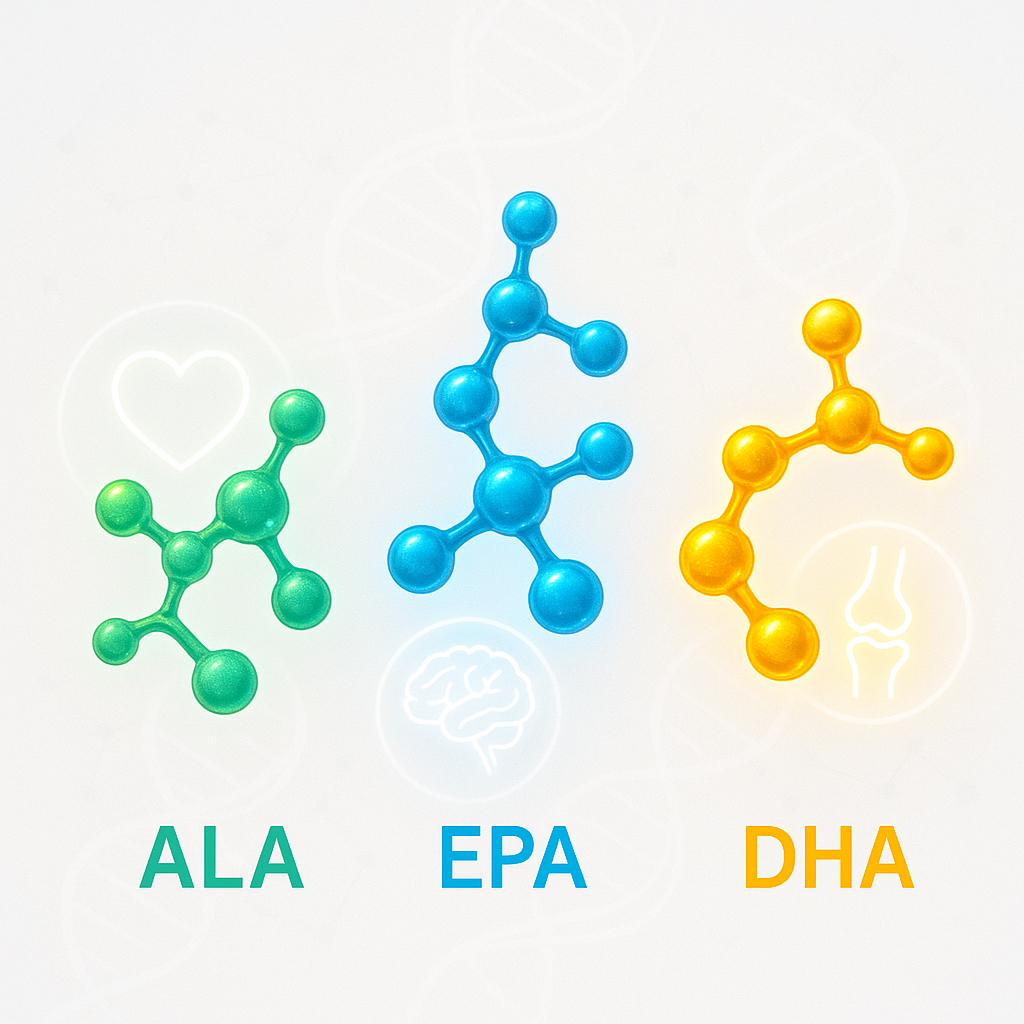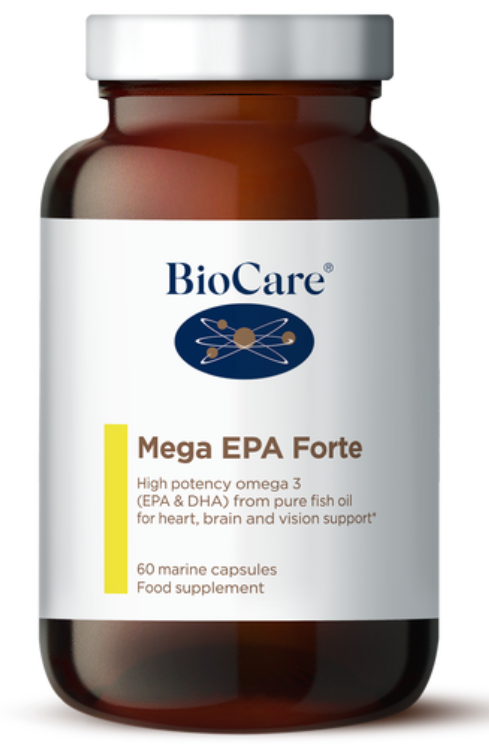Understanding How Omega-3 Fatty Acids Contribute to Effective Inflammation Management
Discovering the Essential Roles of Omega-3 Fatty Acids in Your Health

Omega-3 fatty acids are indispensable fats that are vital for numerous physiological functions and overall wellness. As the human body is incapable of producing these essential fats on its own, it is critical to obtain them through dietary sources or high-quality supplements. The three principal types of omega-3 fatty acids are ALA (alpha-linolenic acid), EPA (eicosapentaenoic acid), and DHA (docosahexaenoic acid). Each type offers unique advantages, particularly in mitigating inflammation and fostering optimal cognitive health. To effectively tackle inflammation, grasping the essential roles of these fatty acids is crucial.
Extensive scientific studies have consistently revealed the significant impact of omega-3 fatty acids on overall health and wellness. These essential fats are renowned for their contributions to cardiovascular health by lowering triglyceride levels, managing blood pressure, and enhancing vascular function. Moreover, omega-3 fatty acids are fundamental for sustaining optimal brain function, positively affecting mood and cognitive abilities. Consistently consuming omega-3s can lead to remarkable enhancements in health outcomes, emphasizing their critical role in global dietary recommendations.
Would you prefer to listen? Click below.
Examining the Importance of Inflammation in Your Overall Health
Inflammation is a natural biological process that serves a protective function in the body against injury and infection. Acute inflammation manifests through symptoms such as redness, swelling, and pain, which are essential for initiating the healing process. However, when inflammation persists and transitions into a chronic state, it can lead to numerous health issues, including heart disease, diabetes, and autoimmune disorders. The relationship between chronic inflammation and the onset of various diseases underscores the necessity for dietary modifications, particularly through increasing omega-3 fatty acid consumption.
Chronic inflammation is often the result of lifestyle choices, including poor dietary habits, lack of physical activity, and high stress levels. As we delve into the enhancement of omega-3 intake for inflammation management, it becomes evident that sufficient consumption of omega-3s can alleviate the harmful effects associated with chronic inflammation. This is especially critical given the rising prevalence of inflammatory diseases across the globe. By concentrating on reducing inflammation through targeted dietary changes, individuals can significantly enhance their long-term health outcomes.
Analyzing How Omega-3 Fatty Acids Help to Reduce Inflammation
Research indicates that omega-3 fatty acids possess powerful anti-inflammatory properties, enabling them to effectively decrease the levels of inflammatory markers within the body. This is accomplished by inhibiting the generation of pro-inflammatory molecules, such as cytokines and eicosanoids, thereby reducing the inflammatory response. This mechanism is particularly beneficial for those suffering from chronic conditions like arthritis, where inflammation is a primary concern.
The strong evidence supporting the optimization of omega-3 intake for inflammation management highlights its effectiveness. Numerous studies show that individuals with higher omega-3 levels exhibit lower concentrations of C-reactive protein (CRP), a well-known marker of inflammation. This finding underscores the potential of omega-3 fatty acids to lower the risk of inflammatory diseases and bolster overall well-being. Embracing dietary patterns rich in omega-3s could yield significant public health advantages, especially in regions grappling with high rates of inflammatory diseases.
Uncovering Nutrient-Dense Sources of Omega-3 Fatty Acids

Incorporating omega-3 fatty acids into your diet is achievable through a variety of nutrient-rich sources. Fatty fish such as salmon, mackerel, and sardines are among the most abundant sources of EPA and DHA. For those pursuing plant-based alternatives, flaxseeds, chia seeds, and walnuts provide ALA, which the body can convert into EPA and DHA, although this conversion is less efficient compared to direct sources.
The food industry has recognized the increasing demand for omega-3 fatty acids by fortifying a wide array of products. Certain eggs, dairy items, and even juices are now enriched with omega-3s, offering consumers convenient options to boost their intake. Algal oil, derived from algae, serves as another excellent vegan source of EPA and DHA. This environmentally friendly alternative to fish oil is gaining popularity, especially among eco-conscious consumers.
Krill oil, extracted from small crustaceans, is an additional source of omega-3 fatty acids and is often regarded as more bioavailable than conventional fish oil. This means that the body can more easily absorb and utilize the omega-3s found in krill oil. When exploring sources, focusing on optimizing omega-3 intake for inflammation can guide your selection of the most suitable options to meet your dietary needs.
Highlighting the Health Advantages of Omega-3 Fatty Acids in Reducing Inflammation
Regular intake of omega-3 fatty acids can provide a wide range of health benefits, particularly for those dealing with inflammatory conditions. Research has demonstrated that individuals who maintain higher levels of omega-3s in their diets experience a reduction in symptoms associated with arthritis and other inflammatory disorders, ultimately enhancing their quality of life. Omega-3 fatty acids are also correlated with improved cardiovascular health, better cognitive function, and increased emotional stability.
The benefits of omega-3 fatty acids extend beyond just managing inflammation. They are essential for supporting brain health, with studies showing that adequate omega-3 intake may lower the risk of cognitive decline and mental health issues. By understanding the extensive benefits of omega-3s, individuals can make more informed dietary choices that prioritize their overall health and wellness. As we examine ways to optimize omega-3 intake for inflammation, it’s crucial to consider both the quantity and quality of the omega-3 sources consumed.
Essential Guidelines for Achieving Optimal Omega-3 Fatty Acid Intake
Determining the Appropriate Daily Levels of Omega-3 Fatty Acids
Establishing the right dosage of omega-3 fatty acids involves adhering to general recommendations that advocate for a daily intake of 250-500 mg of combined EPA and DHA for adults. This benchmark is widely endorsed by health institutions and serves as a foundation for maintaining optimal health. However, individual needs can fluctuate based on lifestyle factors and specific health conditions, making it vital to assess personal requirements carefully.
For example, individuals with active lifestyles or those experiencing heightened inflammation may find increased dosages beneficial. As we examine the specifics of optimizing omega-3 intake for inflammation, we must take into account factors such as age, body weight, and overall health status. Consulting healthcare professionals can ensure that you effectively meet your unique omega-3 needs.
Adopting a comprehensive approach to omega-3 consumption can significantly influence health outcomes. Regular intake of omega-3s not only addresses inflammation but also supports crucial bodily functions, including cardiovascular health and cognitive performance. By staying informed about recommended dosages, individuals can proactively enhance their overall well-being.
Customizing Omega-3 Dosages Based on Health Conditions
Specific medical conditions may necessitate adjustments to omega-3 dosages. For instance, individuals diagnosed with heart disease might benefit from higher intakes, often ranging from 1,000 to 4,000 mg per day, as advised by healthcare professionals. Likewise, those suffering from rheumatoid arthritis or other inflammatory disorders may discover that increasing their omega-3 intake can significantly reduce inflammation and associated symptoms.
When considering how to optimize omega-3 consumption for inflammation, it is essential to consult with a healthcare professional, particularly when contemplating higher doses. This precaution is especially important for individuals currently taking medications for chronic conditions, as potential interactions may arise. Tailoring omega-3 intake to meet individual health needs can enhance efficacy and improve health outcomes.
Individuals may also consider monitoring their omega-3 levels through blood tests to ensure they remain within optimal ranges. This approach allows for adjustments based on personal health objectives and responses to supplementation, leading to a more tailored and effective health strategy.
Evaluating Omega-3 Supplements Versus Dietary Sources
While obtaining omega-3 fatty acids from dietary sources should ideally be the primary method of consumption, supplements provide a viable alternative for those unable to meet their needs through food alone. Popular supplement forms such as fish oil capsules, krill oil, and algal oil deliver concentrated doses of omega-3s.
However, prioritizing quality is crucial when selecting omega-3 supplements. Choose products that have undergone third-party testing for purity and potency, ensuring they are free from harmful contaminants. Although supplements can be beneficial, they should not replace a well-rounded diet rich in whole foods. Emphasizing a nutrient-dense diet can enhance overall health and support the goals of optimizing omega-3 intake for inflammation.
Incorporating omega-3-rich foods into one’s diet represents a sustainable strategy that not only aids in managing inflammation but also contributes to overall wellness. By focusing on dietary sources, individuals can benefit from additional vitamins, minerals, and phytochemicals found in whole foods, thereby enhancing their health on multiple levels.
Recognizing Nutrient-Dense Sources of Omega-3 Fatty Acids
Highlighting Fatty Fish as an Excellent Source of Omega-3s
Fatty fish rank among the richest sources of omega-3 fatty acids, particularly EPA and DHA. Species such as salmon, mackerel, sardines, and anchovies provide substantial quantities of these essential fats. Consuming fatty fish at least twice weekly is generally recommended to easily meet omega-3 requirements.

In addition to their omega-3 content, these fish are rich in high-quality protein, vitamins, and minerals, making them a cornerstone of a nutritious diet. Regularly consuming fatty fish offers numerous health advantages, including reduced inflammation, improved heart health, and enhanced cognitive function. As we examine ways to optimize omega-3 intake for inflammation, incorporating fatty fish into your meals can significantly contribute to achieving targeted health outcomes.
For those with dietary restrictions or preferences that limit fish consumption, alternatives are readily available. Canned fish, such as sardines and tuna, offer convenient options that retain their nutritional integrity. Cooking methods such as grilling, baking, or even smoking fish can provide variety in meals, ensuring that individuals can enjoy the health benefits of omega-3s without monotony.
Exploring Plant-Based Sources of Omega-3 Fatty Acids
For individuals adhering to vegetarian or vegan diets, there are numerous plant-based sources of omega-3 fatty acids available. Flaxseeds, chia seeds, and walnuts are excellent sources of ALA, the plant-derived omega-3. While ALA must be converted into EPA and DHA within the body, it still provides valuable anti-inflammatory effects.
Incorporating these nutrient-dense foods into your daily diet can be simple, such as adding flaxseeds to smoothies or oatmeal, sprinkling chia seeds onto salads, or snacking on a handful of walnuts. Highlighting plant-based omega-3 sources aligns seamlessly with the objective of optimizing omega-3 intake for inflammation, especially for individuals embracing vegetarian or vegan lifestyles.
Other foods like edamame, seaweed, and various green leafy vegetables also contain ALA and can contribute to overall omega-3 intake. Integrating a variety of sources ensures a balanced approach to omega-3 consumption, accommodating diverse dietary preferences and requirements.
Investigating Omega-3 Fortified Foods for Enhanced Consumption
In recent years, the food industry has responded to the increasing demand for omega-3 fatty acids by fortifying a broad range of products. Foods such as select eggs, dairy products, and even orange juice now feature added omega-3 fatty acids, providing individuals an effortless way to enhance their intake, particularly if they find it challenging to consume adequate omega-3-rich foods.
Fortified foods can be especially advantageous for those who may not enjoy fish or plant-based sources of omega-3s. As we think about optimizing omega-3 intake for inflammation, incorporating these fortified foods could present a practical solution for increasing overall omega-3 consumption. Nonetheless, it is essential to scrutinize product labels to ensure these items contain beneficial levels of omega-3s.
While fortified foods can supplement a diet lacking omega-3s, they should not entirely replace whole food sources. A multifaceted approach that includes natural sources alongside fortified options can provide comprehensive health benefits.
Understanding the Benefits of Algal Oil as a Vegan Source of Omega-3
Algal oil, derived from algae, serves as a sustainable and vegan source of EPA and DHA omega-3 fatty acids. This oil is gaining traction, particularly among those concerned about the ecological impact of conventional fishing practices and fish farming. By utilizing algae, we tap into a rich source of omega-3s without depleting ocean resources.
The advantages of algal oil extend beyond sustainability. It provides omega-3s in a form that the body readily absorbs, similar to fish oil. As we investigate ways to optimize omega-3 intake for inflammation, algal oil presents an appealing option for those looking to increase their consumption of these essential fatty acids while adhering to plant-based diets.
Regular consumption of algal oil can be particularly beneficial for individuals at risk of inflammatory conditions. Research suggests that algal oil supplements may help lower inflammatory markers and promote overall health. As this option continues to gain popularity, it presents an exciting opportunity for enhancing omega-3 intake on a global scale.
Evaluating the Benefits of Krill Oil for Improved Omega-3 Intake
Krill oil, sourced from tiny Antarctic crustaceans, represents another highly bioavailable source of omega-3 fatty acids. It contains both EPA and DHA and is often praised for its superior absorption compared to traditional fish oil. The phospholipid form of omega-3s found in krill oil enhances absorption, making it an attractive choice for those seeking to effectively boost their omega-3 intake.
Beyond omega-3s, krill oil is also abundant in antioxidants, particularly astaxanthin, which adds additional health benefits. Research indicates that krill oil may improve heart health, reduce inflammation, and enhance cognitive function. When considering how to optimize omega-3 intake for inflammation, krill oil can serve as a potent ally in promoting overall wellness.
Despite its numerous advantages, it is important to approach krill oil supplementation with care. Individuals with shellfish allergies should avoid it, and consulting a healthcare professional is advisable before starting any new supplementation routine. Emphasizing a variety of omega-3 sources, including krill oil, can provide a comprehensive strategy for enhancing global health.
Recognizing Possible Side Effects and Necessary Precautions
Identifying Common Side Effects Associated with Omega-3 Supplementation
While omega-3 fatty acids are generally regarded as safe, high doses may lead to mild side effects. Individuals might experience a fishy aftertaste, nausea, or loose stools, especially when first introducing omega-3 supplements into their diet. These side effects can often be mitigated by taking supplements with meals or selecting enteric-coated capsules designed to minimize the fishy taste.
When optimizing omega-3 intake for inflammation, it is crucial to adhere to recommended dosages. Surpassing these guidelines can lead to more severe side effects, such as an increased risk of bleeding or gastrointestinal problems. For most individuals, moderate supplementation effectively manages inflammation without significant adverse effects.
If side effects persist, individuals should reassess their omega-3 consumption and consult a healthcare provider. By ensuring that omega-3 intake remains within safe limits, individuals can reap the extensive benefits of these essential fatty acids while minimizing the risk of discomfort.
Recognizing Interactions Between Omega-3s and Medications
Omega-3 supplements may interact with specific medications, particularly blood thinners such as warfarin and aspirin. Given that omega-3s exhibit blood-thinning properties, excessive consumption could increase the risk of bleeding, particularly during surgical procedures or when combined with anticoagulant medications.
When considering how to optimize omega-3 intake for inflammation, individuals on medication must consult their healthcare provider before initiating or significantly increasing their omega-3 consumption. This ensures safe and effective management of inflammation while minimizing potential adverse interactions.
Regular monitoring and open communication with healthcare professionals can facilitate effectively navigating potential interactions. This proactive approach enables individuals to safely benefit from omega-3s while managing their existing medical conditions.
Identifying Individuals Who Should Avoid Omega-3 Supplements
Certain individuals should exercise caution or avoid omega-3 supplements altogether. Those with bleeding disorders or conditions that elevate bleeding risk should carefully assess their omega-3 intake. Individuals allergic to fish or shellfish should avoid consuming fish-based omega-3 supplements and consider plant-derived alternatives such as flaxseed or algal oil.
As we explore optimizing omega-3 intake for inflammation, it is essential to approach supplementation with a clear understanding of individual health conditions. This knowledge empowers individuals to make informed decisions that prioritize their safety and health.
For those uncertain about their suitability for omega-3 supplementation, consulting with a healthcare professional can provide clarity and guidance. This personalized strategy ensures that individuals can explore the potential benefits of omega-3s while addressing their unique health needs.
Effective Strategies for Measuring Omega-3 Levels
Utilizing Blood Tests to Assess Omega-3 Index
Evaluating omega-3 levels in the body can be effectively performed through blood tests that measure the Omega-3 Index. This test assesses the percentage of EPA and DHA present in red blood cell membranes, providing essential insights into an individual’s omega-3 status. A higher Omega-3 Index is associated with a lower risk of chronic diseases, making this test a vital tool for those aiming to optimize their omega-3 intake.
Regular testing allows individuals to monitor the effectiveness of their dietary or supplementary omega-3 strategies. As we consider optimizing omega-3 intake for inflammation, understanding one’s Omega-3 Index can offer valuable feedback for necessary adjustments. This approach facilitates a personalized strategy to meet health objectives more effectively.
Healthcare professionals often recommend periodic testing, especially for individuals with inflammatory conditions or those striving to maintain optimal health. By actively monitoring omega-3 levels, individuals can ensure they maximize the benefits of their dietary choices.
Interpreting Omega-3 Testing Results for Informed Dietary Decisions
An Omega-3 Index of 8% or higher is generally considered optimal for reducing inflammation and enhancing overall health. However, many individuals may fall below this threshold, highlighting the importance of prioritizing omega-3 intake. Understanding the implications of test results can empower individuals to make informed dietary choices that align with their health aspirations.
When interpreting results, it is essential to take into account contributing factors such as dietary habits, lifestyle choices, and general health condition. Individuals with lower Omega-3 Index levels may need to enhance their consumption of omega-3-rich foods or consider supplementation to improve their health outcomes.
As we focus on optimizing omega-3 intake for inflammation, interpreting test results provides a clear pathway for improvement. By establishing personal targets based on the Omega-3 Index, individuals can strive towards a healthier, more balanced lifestyle that emphasizes anti-inflammatory benefits.
The Importance of Consistent Monitoring for Optimal Health
Regular monitoring of omega-3 levels is vital for preserving optimal health and ensuring the effectiveness of dietary adjustments or supplementation. Tracking your omega-3 intake over time aids in identifying patterns in your levels, making it easier to modify your diet or supplements as needed.
Many individuals may find it helpful to set reminders for regular testing, especially if managing chronic inflammatory conditions. This proactive approach ensures that omega-3 intake aligns with health objectives, facilitating timely adjustments to maximize benefits.
Consistent monitoring plays a crucial role in any strategy aimed at improving health through optimizing omega-3 dosages. It assists in tracking progress and making necessary adjustments. Staying engaged with your health enables better decision-making, ultimately enhancing daily well-being and minimizing the impact of inflammation on your body and overall health.
Identifying Lifestyle Factors that Influence Omega-3 Effectiveness
Examining the Link Between Diet and Omega-3 Efficacy
Your dietary choices can significantly affect the efficacy of omega-3 fatty acids. A diet high in processed foods, sugars, and trans fats can undermine the benefits of omega-3s, potentially exacerbating inflammation rather than alleviating it. To fully leverage the advantages of omega-3s, it is crucial to adopt eating habits that support their effects. This involves choosing a balanced, nutritious diet that complements, rather than negates, their positive impacts.
Prioritizing whole foods, such as fruits, vegetables, whole grains, and lean proteins, enhances the body’s ability to utilize omega-3s effectively. This dietary framework not only boosts the efficacy of omega-3s but also contributes to overall health and wellness. As you consider optimizing your omega-3 intake for inflammation, it’s essential to recognize that the quality of your diet is just as important as the quantity of omega-3s consumed.
Integrating anti-inflammatory foods, such as turmeric, ginger, and various spices, can further amplify the benefits of omega-3 fatty acids. The synergistic effects of these foods can assist the body in combating inflammation and promoting optimal health outcomes.
Incorporating Regular Exercise to Maximize Omega-3 Benefits
Consistent physical activity serves as an effective ally in maximizing the advantages of omega-3s. Engaging in regular exercise can help diminish inflammation and improve the body’s capacity to utilize omega-3 fatty acids effectively. Maintaining an active lifestyle can significantly enhance overall health, encompassing everything from weight-bearing exercises to cardiovascular activities. Research shows that individuals who engage in regular physical activity exhibit lower inflammatory markers in their bodies. This underscores the importance of integrating physical activity with omega-3 intake to achieve optimal health outcomes.
As you strategize on optimizing omega-3 intake for inflammation, consider incorporating exercise into your routine as a complementary approach. Whether through walking, cycling, or strength training, finding enjoyable ways to remain active can empower you to fully leverage the potential of omega-3s in your health journey.
Implementing Effective Stress Management Techniques to Improve Health
Chronic stress can elevate inflammation levels, highlighting the importance of effective stress management techniques. Strategies such as mindfulness, meditation, and yoga can mitigate the negative effects of stress on the body, creating a more conducive environment for omega-3 efficacy.
 Integrating stress management practices can significantly enhance your overall health as you focus on optimizing omega-3 intake for inflammation. By addressing the underlying causes of inflammation through a holistic approach, you empower your body to respond positively to dietary changes and supplementation.
Integrating stress management practices can significantly enhance your overall health as you focus on optimizing omega-3 intake for inflammation. By addressing the underlying causes of inflammation through a holistic approach, you empower your body to respond positively to dietary changes and supplementation.
Engaging in regular self-care, prioritizing quality sleep, and nurturing strong social connections can further bolster resilience against stress. This multifaceted strategy allows for a comprehensive approach to managing inflammation and promoting overall wellness.
Addressing Common Questions About Omega-3 Fatty Acids
What are omega-3 fatty acids and why are they essential?
Omega-3 fatty acids are essential fats that the body cannot synthesize independently. They are vital for numerous health functions, including reducing inflammation, supporting heart health, and enhancing brain function.
How do omega-3s effectively combat inflammation?
Omega-3 fatty acids mitigate inflammation by inhibiting the production of pro-inflammatory molecules in the body, thereby helping to alleviate chronic inflammation associated with various diseases.
What is the recommended daily intake of omega-3s for optimal health?
The general recommendation for adults is to consume 250-500 mg of combined EPA and DHA daily. However, individual needs may differ based on health conditions and lifestyle choices.
Can I obtain sufficient omega-3s from a vegetarian or vegan diet?
Vegetarians can secure omega-3 fatty acids from plant-based sources like flaxseeds, chia seeds, and walnuts, which provide ALA. However, the conversion of ALA to EPA and DHA is limited in the body.
Are omega-3 supplements considered safe for general use?
Omega-3 supplements are typically regarded as safe when consumed within recommended dosages. However, those on blood-thinning medications or with allergies should consult a healthcare provider before use.
How can I measure my omega-3 levels to ensure I am within a healthy range?
Omega-3 levels can be assessed through blood tests that evaluate the Omega-3 Index, indicating the percentage of EPA and DHA present in red blood cell membranes.
What foods are rich in omega-3 fatty acids?
Fatty fish such as salmon and sardines, along with plant-based sources like flaxseeds and walnuts, are excellent sources of omega-3 fatty acids.
What are the common side effects associated with omega-3 supplements?
Common side effects of omega-3 supplements may include a fishy aftertaste, nausea, and loose stools, particularly when taken at higher doses.
Can omega-3 fatty acids provide relief for arthritis symptoms?
Yes, omega-3 fatty acids can help alleviate arthritis symptoms by reducing inflammation and improving joint health and mobility.
Is krill oil considered superior to fish oil?
Krill oil is often regarded as more bioavailable than fish oil, facilitating better absorption of omega-3s. However, individual preferences and health requirements should guide supplement choices.
Connect with us on Facebook!
The Article: Omega-3s Fight Inflammation: Boosting Health Naturally appeared first on https://janestevensnutrition.com
The Article Omega-3s: Naturally Boost Health and Combat Inflammation Was Found On https://limitsofstrategy.com
The Article Omega-3s: Combat Inflammation and Enhance Health Naturally First Appeared ON
: https://ad4sc.com

